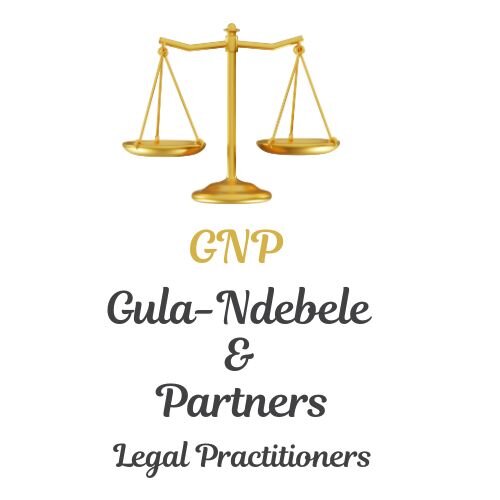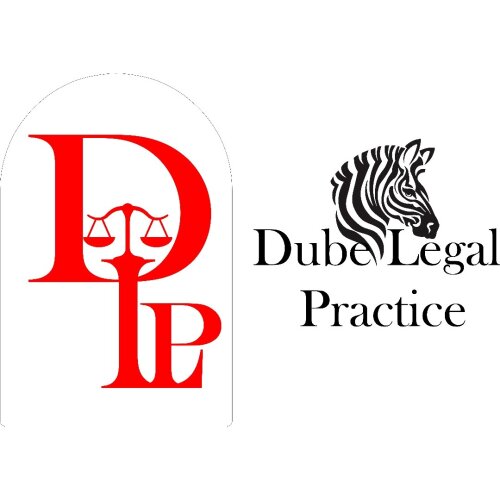Best Landlord & Tenant Lawyers in Bulawayo
Share your needs with us, get contacted by law firms.
Free. Takes 2 min.
Free Guide to Hiring a Real Estate Lawyer
List of the best lawyers in Bulawayo, Zimbabwe
About Landlord & Tenant Law in Bulawayo, Zimbabwe
Landlord and Tenant law in Bulawayo is a branch of property law that governs the rights and duties of those who own and those who occupy residential and commercial properties. The law provides the framework for creating, managing, renewing, and terminating rental agreements. In Bulawayo, as in the rest of Zimbabwe, both landlords and tenants must follow rules set out in lease agreements and relevant statutes. These laws seek to balance the interests of both parties while ensuring access to fair housing and the proper management of rental properties.
Why You May Need a Lawyer
Situations involving landlord and tenant matters are often sensitive and may escalate if not properly handled. You may need a lawyer in the following common scenarios:
- Drafting or reviewing lease agreements to ensure they are legally sound and clear
- Handling eviction proceedings, including serving notices and appearing in court
- Addressing disputes about rent, security deposits, or property maintenance
- Seeking compensation for damages to property
- Allegations of illegal eviction or harassment
- Resolving disagreements over lease renewals or terminations
- Challenging unfair rent increases
- Dealing with complaints about uninhabitable living conditions
- Representing either landlords or tenants in legal proceedings
Legal assistance helps clarify complex issues and protects your rights within the bounds of the law.
Local Laws Overview
In Bulawayo, landlord and tenant relationships are primarily governed by several pieces of legislation, mainly the Rent Regulations found in the Rent Regulations Statutory Instrument 676 of 1983 (as amended) and the common law principles derived from older English law and local precedents. Some of the key aspects of local law include:
- Rent Control - Certain properties fall under the protection of rent control laws, meaning landlords must apply to the Rent Board for approval of rent increases.
- Lease Agreements - Lease agreements can be written or oral. However, written agreements help in enforcing rights and clarifying duties.
- Eviction Procedures - Landlords must follow due process for eviction, which includes issuing appropriate notices and obtaining a court order before a tenant can be legally removed.
- Security Deposits - It is common for landlords to request a security deposit, but refunds and deductions must be handled transparently and accountably.
- Repairs and Maintenance - Landlords are generally required to keep the property in a habitable condition. Tenants are responsible for day-to-day care and must inform landlords about major repairs.
- Dispute Resolution - Many disputes are resolved at the Magistrates Court or through Rent Boards. Alternative dispute resolution can also be explored.
- Tenant Protections - Certain vulnerable groups and low-income tenants may have additional protections against unfair evictions and unjust rent increases.
Frequently Asked Questions
What is the minimum notice period for evicting a tenant?
The notice period varies depending on the lease agreement, but generally, at least one month's written notice is required for month-to-month leases. Fixed-term leases require notice as specified in the contract, and eviction without a court order is illegal.
Can a landlord increase rent at any time?
No, rent increases are regulated. For properties under rent control, landlords must seek approval from the Rent Board before increasing rent. Even for non-controlled properties, reasonable notice must be given.
Is a verbal rental agreement legally binding?
Yes, verbal rental agreements are recognized by law in Zimbabwe, but written agreements are strongly recommended as they are easier to enforce and prove in court.
What legal steps should a tenant take if the landlord refuses to refund a security deposit?
The tenant should first seek written clarification from the landlord. If the dispute remains unresolved, the tenant can approach the Magistrates Court or the Rent Board for assistance.
Who is responsible for repairs to the property?
Landlords are responsible for major repairs and maintaining the premises in a habitable state. Tenants are responsible for minor repairs and daily upkeep, unless otherwise specified in the lease.
Can a landlord evict a tenant without going to court?
No, landlords must follow legal eviction procedures which include issuing the appropriate notice and obtaining a court order. Self-eviction or forceful removal is illegal and tenants can seek legal protection.
Are tenants protected against unfair eviction?
Yes, tenants are protected by law from arbitrary or retaliatory evictions. Landlords must have valid reasons and follow due process.
What should I do if my landlord is harassing me?
Keep a record of the harassment and seek legal advice immediately. You may apply for a protection order or report the matter to the police if necessary.
How can I challenge an unfair rent increase?
If you believe a rent increase is unfair or illegal, you can file a complaint with the Rent Board or seek legal advice to challenge the increase through the appropriate legal channels.
Where can I go if I cannot afford a lawyer?
Several organizations in Bulawayo offer free or subsidized legal services, especially for vulnerable individuals. See the additional resources section below for more information.
Additional Resources
If you need help or information regarding landlord and tenant matters in Bulawayo, you can reach out to the following resources:
- Bulawayo Rent Board - Provides guidance on rent control, rent increases, and disputes
- Zimbabwe Lawyers for Human Rights - Offers legal assistance to those unable to afford a private lawyer
- Legal Resources Foundation - Provides free or low-cost legal advice and representation
- Bulawayo Magistrates Court - Handles landlord and tenant cases in the formal legal system
- Zimbabwe Republic Police - Can assist in cases of unlawful eviction or harassment
Next Steps
If you are facing a landlord and tenant issue in Bulawayo, begin by reviewing your lease agreement and gathering all correspondence and evidence related to your matter. Seek initial advice from a trusted lawyer or a legal aid organization. If informal resolution is not possible, consider filing a case with the Rent Board or the Magistrates Court. Always act promptly, as delays can affect your legal rights. Remember, professional legal advice is the best way to protect your interests and resolve disputes effectively.
Lawzana helps you find the best lawyers and law firms in Bulawayo through a curated and pre-screened list of qualified legal professionals. Our platform offers rankings and detailed profiles of attorneys and law firms, allowing you to compare based on practice areas, including Landlord & Tenant, experience, and client feedback.
Each profile includes a description of the firm's areas of practice, client reviews, team members and partners, year of establishment, spoken languages, office locations, contact information, social media presence, and any published articles or resources. Most firms on our platform speak English and are experienced in both local and international legal matters.
Get a quote from top-rated law firms in Bulawayo, Zimbabwe — quickly, securely, and without unnecessary hassle.
Disclaimer:
The information provided on this page is for general informational purposes only and does not constitute legal advice. While we strive to ensure the accuracy and relevance of the content, legal information may change over time, and interpretations of the law can vary. You should always consult with a qualified legal professional for advice specific to your situation.
We disclaim all liability for actions taken or not taken based on the content of this page. If you believe any information is incorrect or outdated, please contact us, and we will review and update it where appropriate.













